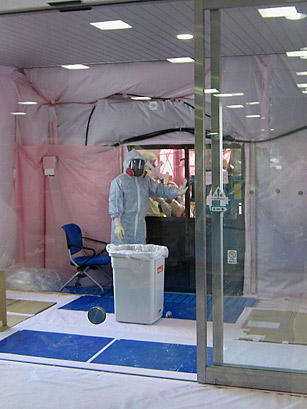
In truth, there were far more than 50. The name derives from the original 50 Tokyo Electric Power Co. workers who stayed behind in the Fukushima nuclear plant after it was crippled by an earthquake and tsunami. Those workers were soon joined by hundreds of firefighters, engineers and even soldiers from around Japan — all of whom, as then Japanese Prime Minister Naoto Kan put it, were "prepared for death" as they fought for weeks to prevent the plant from melting down uncontrollably. The Fukushima disaster exposed some of the worst aspects of Japanese politics: secretiveness, buck passing and a willingness to sacrifice safety for the convenience of the powerful. But the Fukushima 50 represented Japanese society at its best: stoic heroism, self-sacrifice and a communal spirit.